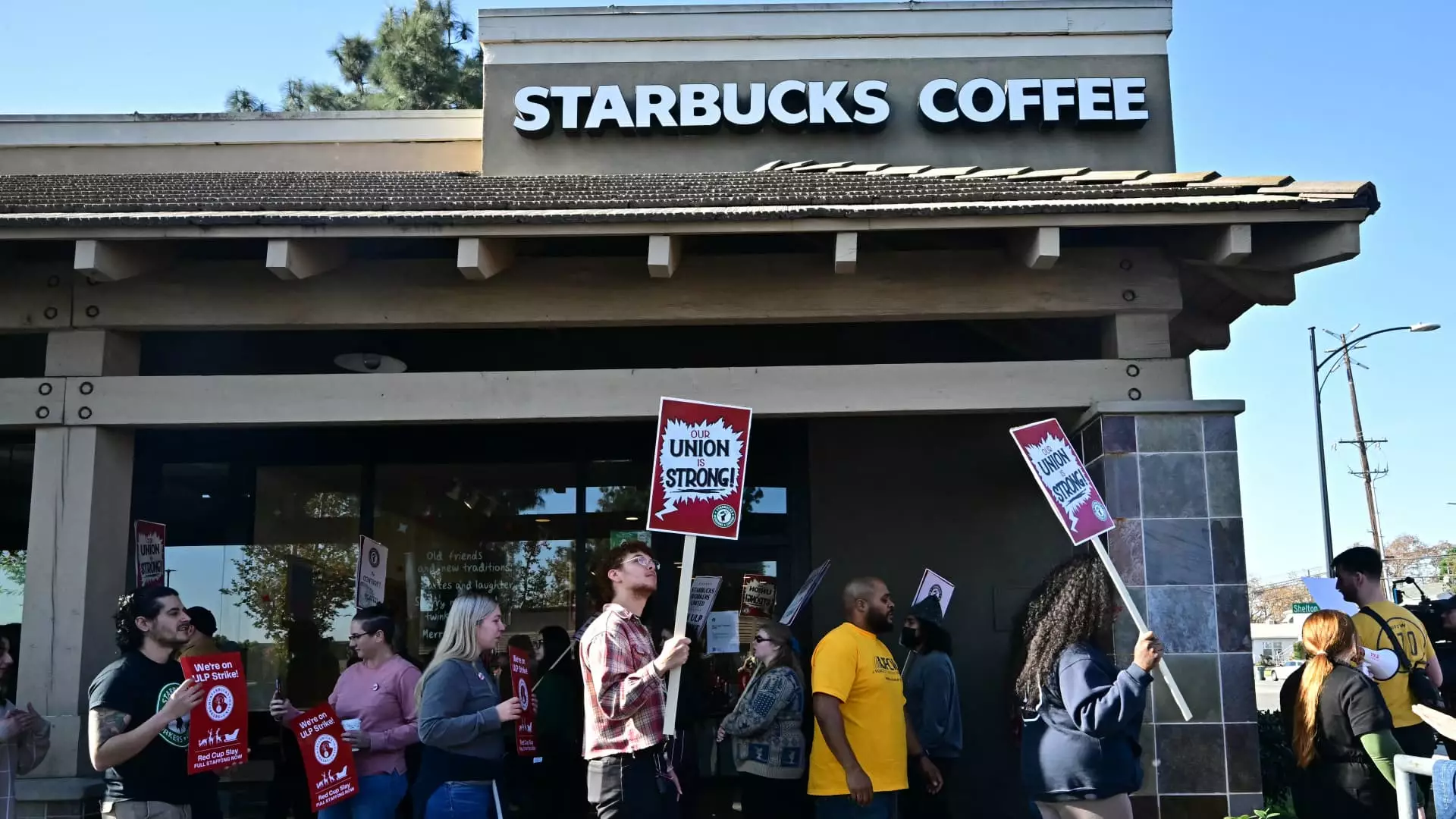In an escalating labor dispute, a significant number of Starbucks employees—approximately 5,000 from over 300 locations across 45 states—have initiated a strike as the company gears up for its bustling holiday season. While this action represents only about 3% of the total Starbucks locations in the U.S., it marks a critical expansion of a movement that began a week earlier in just three cities. The strike is organized by the Seattle-based Service Employees International Union (SEIU) alongside Starbucks Workers United, highlighting ongoing frustrations surrounding what workers describe as unfair labor practices and stagnated contract negotiations.
Demands for Wage Increases
The primary objective of the striking workers is to secure a substantial wage increase. Specifically, they are advocating for an immediate 64% hike in Starbucks’ minimum hourly wage, followed by a cumulative increase of over 77% throughout a proposed three-year contract. Lynne Fox, the president of the Workers Union, emphasized that baristas are fully aware of their worth and will not endorse a proposal that fails to recognize them as partners within the company. “After all Starbucks has said about how they value partners throughout the system, we refuse to accept zero immediate investment in baristas’ wages,” Fox stated, underlining the group’s determination for equitable treatment.
In response to the strikers’ demands, Starbucks executives have characterized the requests as “not sustainable.” Sara Kelly, the company’s executive vice president, highlighted the existing benefits that workers receive, including an average hourly compensation of $30 when pay and benefits for part-time employees are combined. Kelly also accused the union of abandoning negotiations, insisting that Starbucks remains willing to continue discussions whenever the union is prepared to return to the bargaining table.
The timing of this strike is particularly noteworthy as it coincides with a busy holiday period that typically boosts sales for Starbucks. The company recently experienced a surge in investor confidence after securing former Chipotle CEO Brian Niccol to lead the team. However, it appears that the enthusiasm may be fleeting, as the company’s share price has witnessed a decline, reflective of broader market trends. Niccol, who has pledged to engage with the union in good faith, brings with him a mixed legacy, marked by previous labor disputes during his tenure in the fast-food industry.
As the Starbucks strike continues, it presents not only a challenge for management but also raises significant questions about the treatment of workers in the retail and service sectors. The outcome of these negotiations could set a precedent for similar movements across various industries, highlighting the increasing demand for fair wages and appropriate labor practices in an economy recovering from the pandemic’s impact. With workers united in their resolve, the coming weeks will be crucial in determining the future of labor relations at Starbucks and potentially beyond.

Leave a Reply